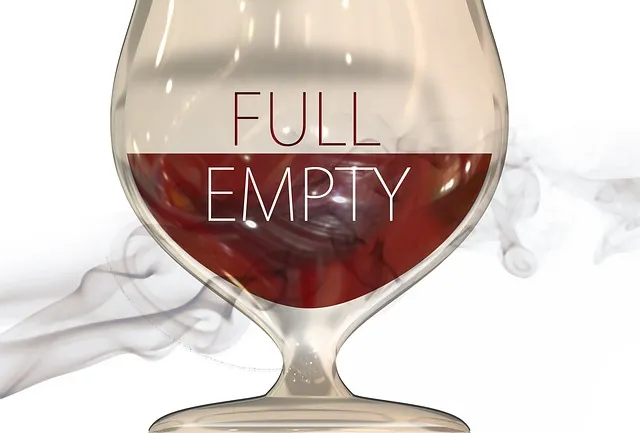I don't know if anyone can ever accuse me of being a positive person. I'm unabashedly logical and pragmatic. I call things as I logically or practically see them. If that makes the glass half empty, well, then the glass is half empty. There is no use in crying of the other half that spilled all over the floor; yet, during these last three years, I've tried to maintain an optimism that I think is unusual for me.

Chronic pain will distort so many areas of life. It can make one depressed, angry, alone, and a whole host of other emotions that are generally negative. Being optimistic while in pain is incredibly difficult. Often someone else must pick up that weight. In our case, I've been the optimistic torchbearer.
I hope that hindsight will show I did a good job - that I was encouraging and uplifting enough. In reality, I've fudged a lot of it. I've said and done what I can to ease the burden @millennialnow carries, but the harsh reality is that I can never know what it's really like to live with chronic pain.
I can never fully relate to how he lives life while dealing with a host of symptoms that can be challenging on their own but are truly overwhelming when piled on top of each other. I can never relate to the loneliness he must feel when everyone in the room enjoys talking and laughing while he can only sit and observe. I can never understand the despair he has felt when he considers how this might be his life from now until the end. I simply can never really know. If I'm honest, I hope I never learn.

With all the empathy I can muster about something I've never lived, I soldier on. I've made promises we both know I can't keep. I've assured him that it will all work out when all I have to bank that promise on is my faith, and many days, I've wondered if that will be enough.
There have been times when we've both been angry and desperate. There's no telling how many times we've silently given up. I'll never forget my response when my wonderful pastor and his wife asked me how I got through it all. At first, I was stunned that they'd asked at all - most people don't. Then, I just mumbled something about how I just keep getting up every day.
When life hands you lemonade, you can't always make lemonade out of those lemons. Maybe you throw them in the trash. Maybe you carry them with you as a reminder of what you have to overcome. Maybe you just keep moving past those lemons and walking toward the next lemons that life will throw you. Most likely, you'll have a good cry, sober up, and press forward because there is no other choice.

It's been hard to watch him suffer and not really be able to provide any tangible assistance. It was hardest on Monday when his physical therapist told him she wanted to suspend treatment on his neck until he got some of his other medical issues sorted out because they'd hit the proverbial brick wall. I do know the black hole he fell into then. It's one of the few things I can understand. I think I also fell into that hole.
Without therapy, there's a great chance his condition will deteriorate more. Migraines will continue to get worse. Muscles will continue to get weaker. Pain will continue to grow.
We knew MRI results could change everything about his treatment. With the right results, there could still be hope, but against the backdrop of uncertainty, little hope was to be found. I prayed almost incessantly for a solid 24 hours for a miracle, any miracle. I couldn't even form coherent sentences; yet, I pleaded with God to end this suffering for him, for us both.
Tuesday's workday came and went and no word came about the MRIs. We'd have to start figuring out what to do if this was it and this was his fate. I'd already informed my manager that the time may soon come where I'd have to look for employment elsewhere. "I'll just need to make more money," I told her. Then, at the eleventh hour of the workday, the first of two calls came.
Three bulging discs in his lower neck. That is what the MRI uncovered. Then, he got the call from the surgeon's office. A torn rotator cuff in his right shoulder. He'll need surgery to fix that. He'll also need a sleep study to get what we're pretty sure is undiagnosed sleep apnea straightened out and an epidural before surgery to ease the pain in his neck.
No one shouts for joy when they hear surgery is needed, but that's what we did. It's a problem that can be fixed. Not only will a repaired rotator cuff ease the pain in his shoulder but it could help ease the migraines. Whatever machine he gets out of the sleep study can help too. Once the bulging discs begin to heal, that should also relieve pain in the neck and lessen the migraines. These are treatments that should have tangible outcomes. The best part is that he'll get to resume therapy after surgery.
Until then,
